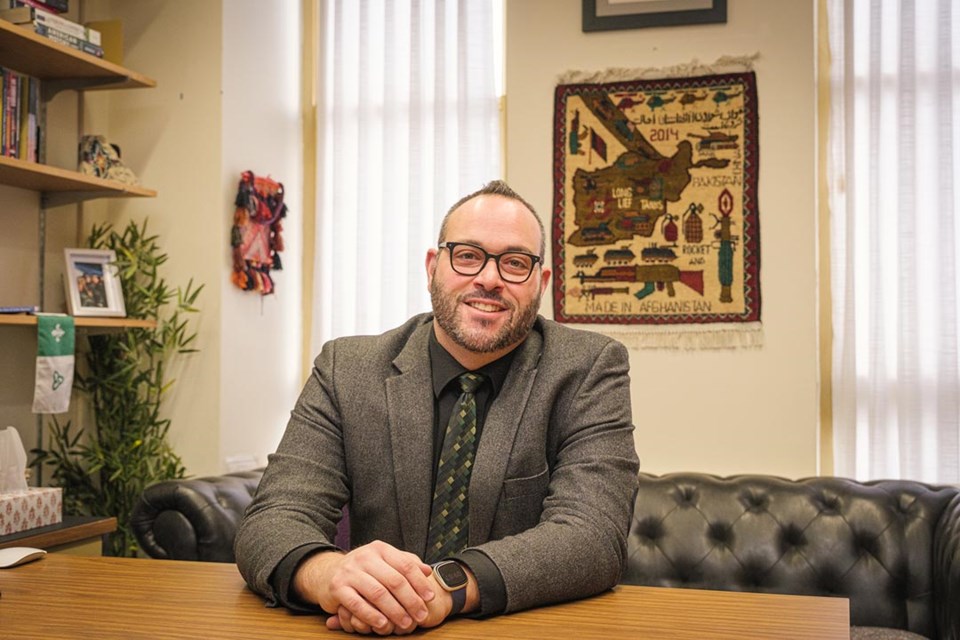SASKATOON — A now-defunct world news co-operative’s legacy is found in the creation of Métis Nation–Saskatchewan’s New Breed Magazine in 1970, establishment of the national APTN network in 1992, launch of Al Jazeera in 2006, and the growing presence of Indigenous and minority journalists in media today.
That’s the thesis of University of Saskatchewan (USask) researcher Dr. Maurice Labelle (PhD). He is leading an international collaborative study of how the Non-Aligned News Agencies Pool (NANAP), which operated from 1974 to the mid-1990s, paved a path toward more equitable and decolonized news reporting by challenging racist attitudes and practices of western news agencies.
“NANAP was actually the largest international attempt against perpetuating global oppression in the world press, and nobody knows about it,” said Labelle, an associate professor in USask’s College of Arts and Science, who describes himself as an international historian of decolonization.
“A deeper understanding of NANAP will shed new light on challenges surrounding systemic barriers in global news-making and current anti-racist efforts to change media infrastructures in ways that amplify the voices and stories of marginalized peoples at home and abroad,” said Labelle.
Labelle’s project has been awarded a partnership development grant of $198,000 over three years by Canada’s Social Sciences and Humanities Research Council (SSHRC), and includes researchers from Canada, France, the United States, Italy, Lebanon, the Netherlands, and the United Kingdom. Project partners are the United Nations Educational, Scientific and Cultural Organization (UNESCO), the Universities of Saskatchewan, British Columbia, and Toronto, and the private advertising firm Resonator Agency Inc.
Researchers will study UNESCO’s vast archival holdings and digital library in Paris, documents from the former Yugoslavia—a strong early supporter of NANAP—archived in Belgrade, Serbia, and personal papers of partnership member Roberto Savio, founder of the Third World news agency Inter Press.
Major agencies that dominated world news coverage—the Soviet Union’s Tass, and western-controlled Associated Press (AP), Reuters, Agence France-Presse (AFP), and United Press International (UPI)—did not respect the importance of local journalists in oppressed places or their ability to accurately convey local experiences or sentiments, Labelle said.
He cited a disturbing exchange Savio reported having with a foreign desk editor at AFP, who opined: “What’s true in Paris is also true in Timbuktu. Therefore, a French journalist can write from Timbuktu without any problem. Actually, he will write better than an African journalist.”
Labelle said NANAP opened the door to enable free and open exchanges among more than 40 national news agencies in Africa, Asia, the Middle East, Latin America, and Europe, who continue to strive to decolonize a world news domain, which was created and racially maintained by the imperial west.
Along with examining NANAP’s international efforts to democratize world news, the project is developing an international network that seeks to unite decolonization scholars in the global north and south, training students of diverse backgrounds to develop skills in communication, data management and social research, contributing to the social benefits advanced by community-based champions of equity, diversity, and inclusion in education and media.
“NANAP was part of something big in in terms of international journalism and news, and it has led to a broader decolonization phenomenon that is gaining momentum by basically forcing straight white men to give up power and privilege and adopt a broader, inclusive mindset,” said Labelle.
In partnership with UNESCO, Labelle plans to organize an online workshop, hosted by USask, bringing together researchers from the global north and south to delve into UNESCO’s archives to examine a largely forgotten UNESCO initiative called the New World Information and Communications Order (NWICO), which attempted to balance the circulation of information between developed and developing nations.
The workshop will be followed a year later with an international conference on NWICO at the University of Toronto. The goal is to produce a co-edited volume on NWICO based on the research.
— Submitted by USask Media Relations




